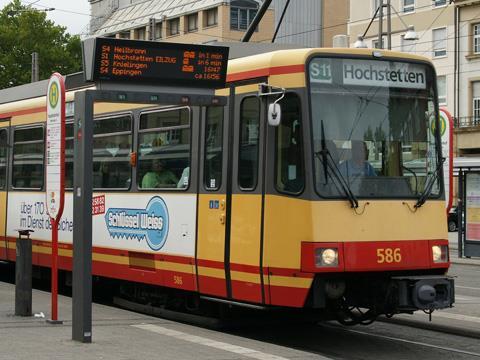
GERMANY: Successful initial tests are being followed up by a second phase of trials of nickel-cadmium batteries in place of wet cells on tram-trains in Karlsruhe.
Operator Stadtbahn Karlsruhe will look at the reliability, performance and total cost of ownership of the Saft Matrics MRX 200 batteries, which are used to power tram-trains for up to 250 m while they switch between 750 V DC and 15 kV 16·7 Hz.
The trams currently use lead-acid batteries, but Ni-Cd potentially offers a higher capacity within the same footprint, and without suffering degradation from deep discharge or at temperature extremes. Battery life would be more predictable and increase from two to three years to 15 years, without the risk of 'sudden death'. The higher initial cost of Ni-Cd is expected to be paid back in lower operation, maintenance and replacement costs over a 12 year period.
The batteries being tested have a nominal rating of 200Ah, with the lower capacity than the 230 Ah lead-acid batteries being offset by the capability of delivering a higher current, particularly at low temperatures.
'Saft's Ni-Cd battery performed very well during the field test, with no problems or outages, which is more important than anything else, including cost, since fewer outages mean more passenger availability', said Rainer Supper of Stadtbahn Karlsruhe. 'We didn't need to touch the Saft battery for a whole year.'

















